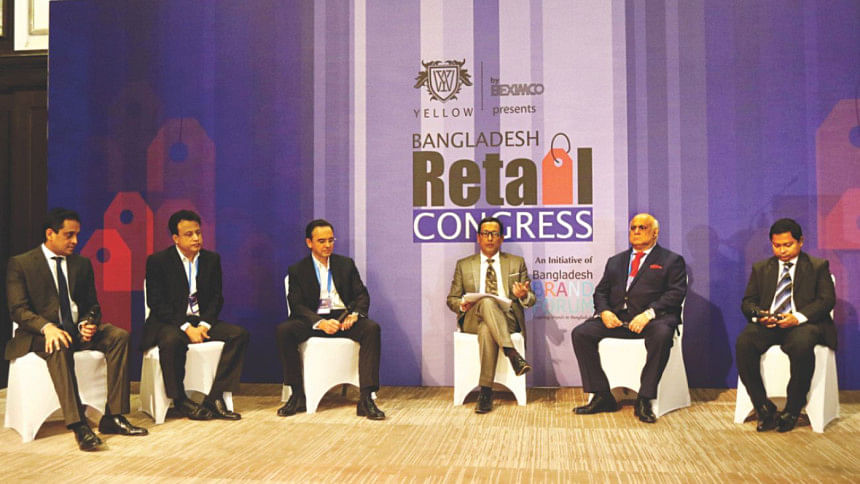Right strategy key to e-commerce growth: retailers

Organised retailers must draft in a strong e-commerce strategy to cater to the growing army of online consumers, industry people said yesterday.
“With technological innovations, the shopping experience has changed. Now, customers want immediate services and gratification,” said Syed Naved Husain, chief executive officer of Beximco Ltd, which owns clothing brand Yellow.
Shehryar Burney, executive director of Beximco Textiles, said retail brands have to give customers the choices they want. “There has to be a synergy between physical and digital shopping.”
In the next five years, e-commerce will grow immensely, according to Burney.
“So, retailers whether they are in clothing, fashion and grocery, have to put in place the right e-commerce strategy as most of the people are young and are comfortable being online,” he added.
They spoke at the Bangladesh Retail Congress, organised by the Bangladesh Brand Forum in association with Beximco Ltd and Apex at the Le Meridien hotel in Dhaka yesterday.
Retailing accounts for 41 percent of the gross domestic product and employs 20 percent of the labour force, according to Husain. Retail business will grow 15 times by 2020 thanks to the expanding middle-class, he said.
The mobile payment mechanism and mobile phone-friendly websites have to be put in place. “The mobile payment system has to have full-proof security so that your website is not hacked and money is not stolen,” said Husain.
Despite the rising online sales, the brick-and-mortar stores would not go away, he said. “Rather, one will complement the other.”
Businesses must have the right business model in place, cut costs and be efficient, he added.
With an average 7 percent growth in the last one decade, turnover in the retail sector was expected to grow by 30 percent in 2015, according to a report published in the RetailBD, a quarterly publication launched yesterday.
The publication will play a role in sharing best practices, learning and cases from local and global retail practices, said BBF founder Shariful Islam.
He said there is a positive relation between the development of a country and how organised its retail sector is. The retail sector involves transactions of thousands of crores of taka.
“There has not been much work on the sector yet.”
The country's retail sector faces challenges such as policy gaps and skill gaps, he said. Shaheen Khan, CEO of Meena Bazar, painted a gloomy picture of supermarkets.
He said the supermarkets pay 4 percent in value-added tax but the general retail stores do not have to.
“They do not have to face harassment from 14 different government agencies -- each armed with their own standard.”
As a result, the superstores are losing money, he said. Christophe Eichivard, CEO of Agora Supermarkets, said retailers should work with suppliers and farmers in order to provide the best quality of products.
Retailers also called for a common platform or association so that their concerns are properly dealt with.
Under the theme of “Transforming to Sustainable Retail Business,” the daylong event hosted multiple key-note sessions and panel discussions with experts in the retail sector from home and abroad.
The sessions and discussions addressed the current trends in retail business, the challenges, growth prospects and ways to ensure sustainable growth through a cooperative eco-system.
It discussed key areas in retail business, talked about macro-economic factors, shared consumer trends, explored technology innovation and business strategy to help local retailers maximise value creation and business growth.

 For all latest news, follow The Daily Star's Google News channel.
For all latest news, follow The Daily Star's Google News channel. 




Comments